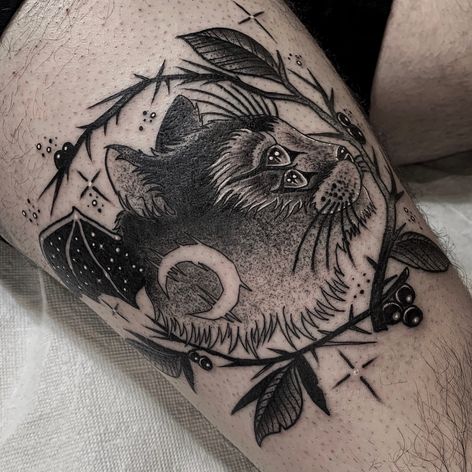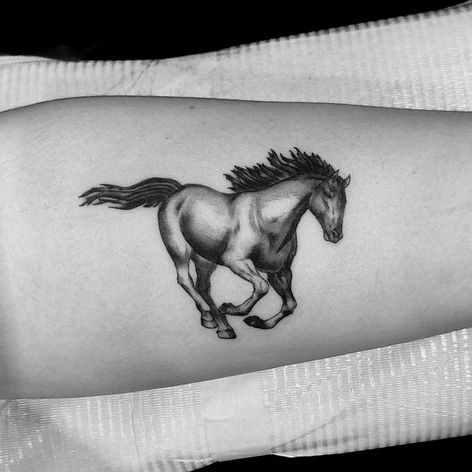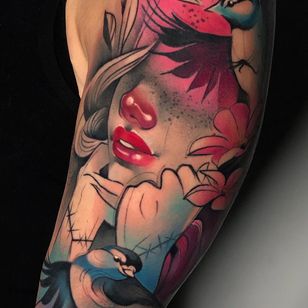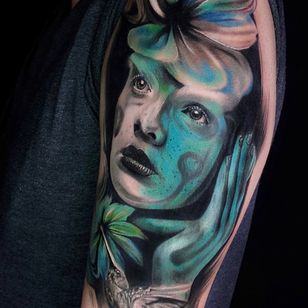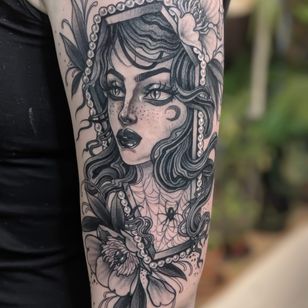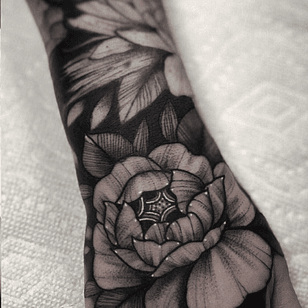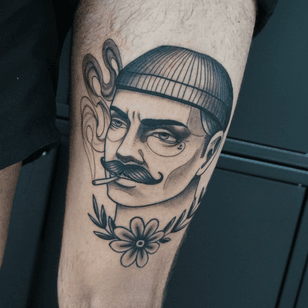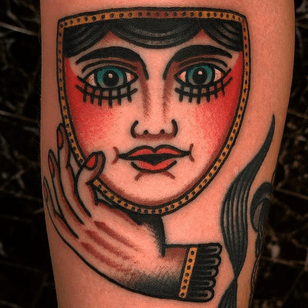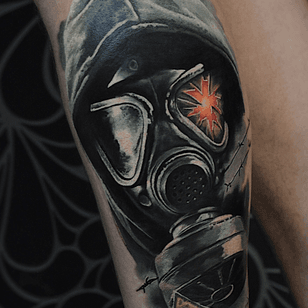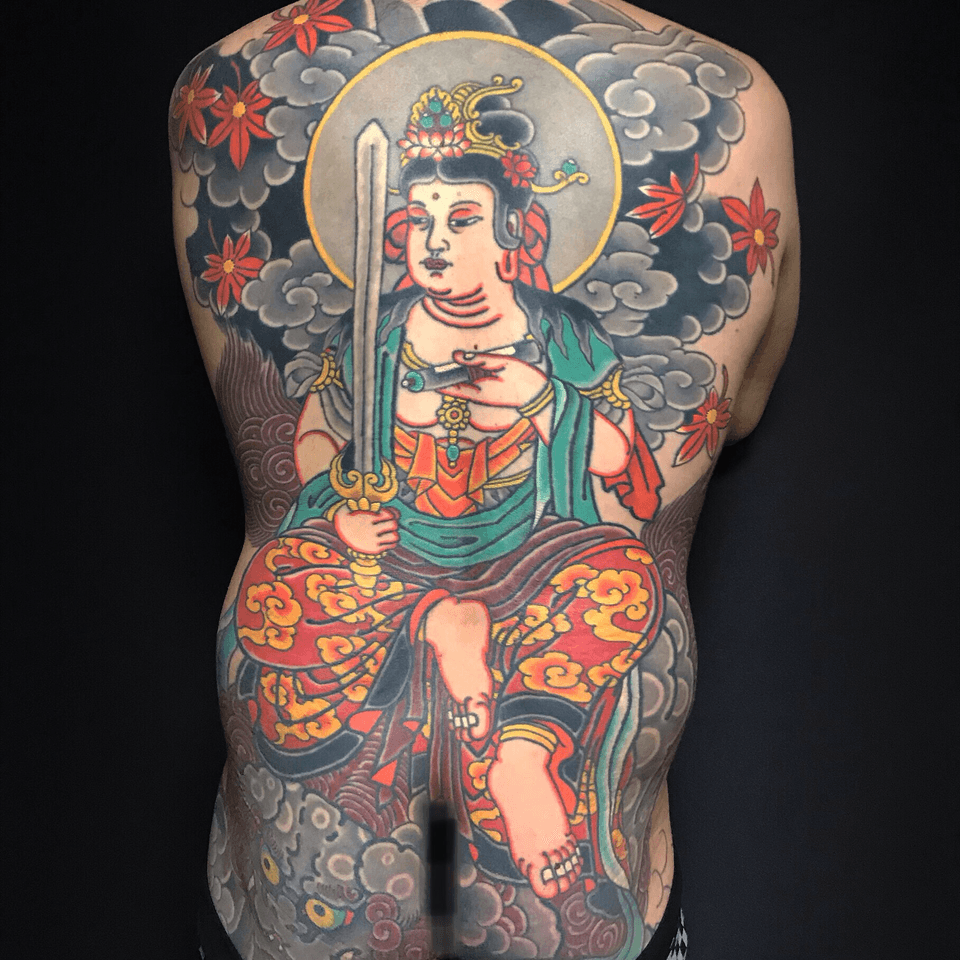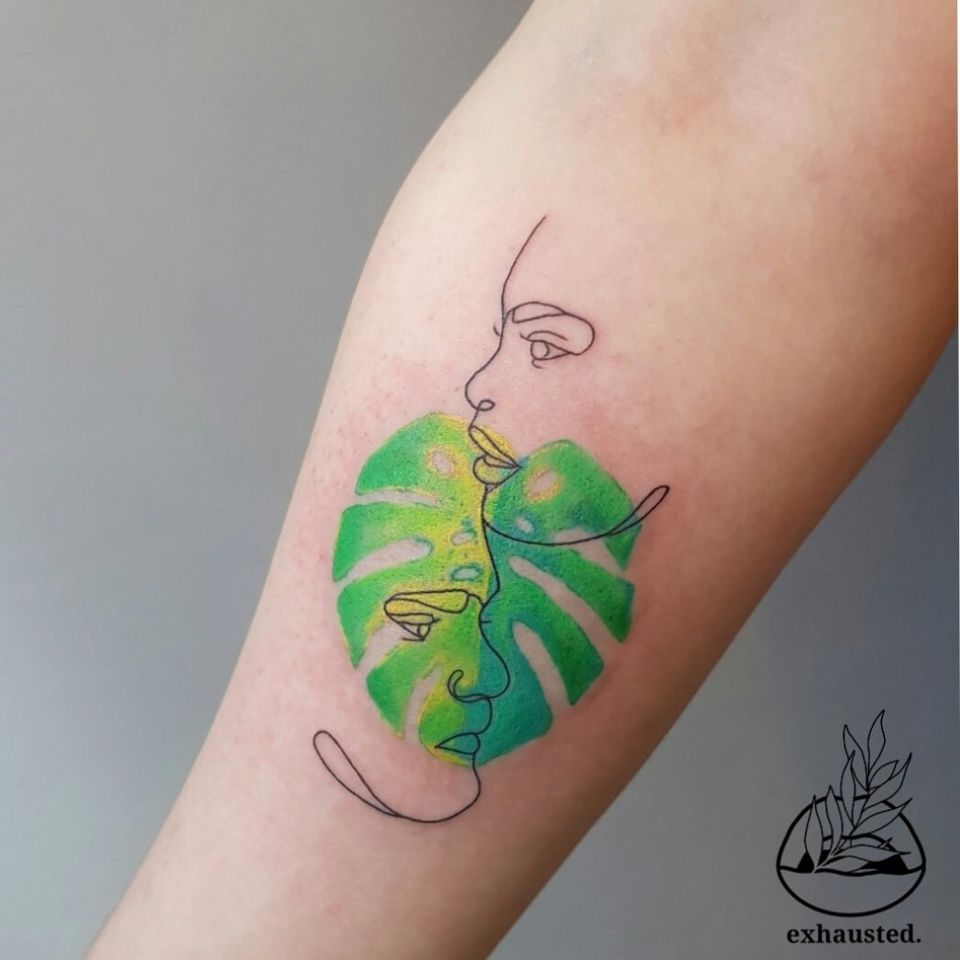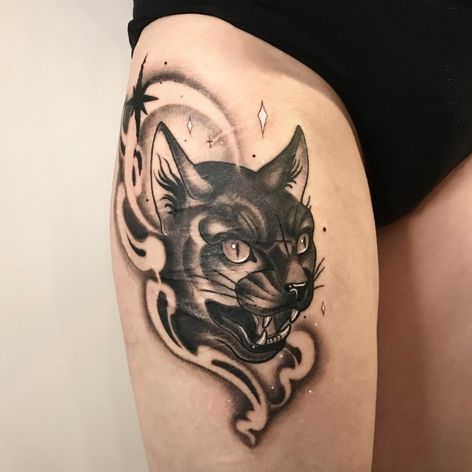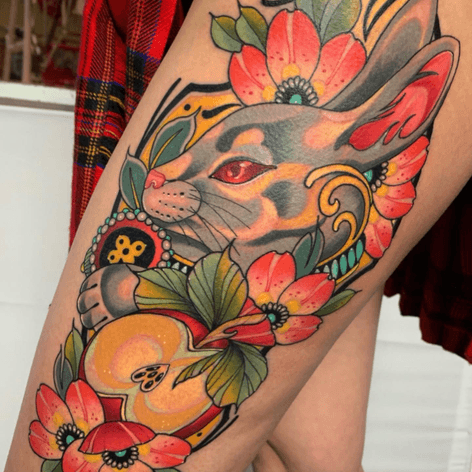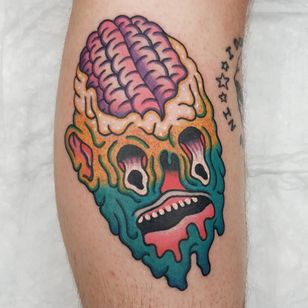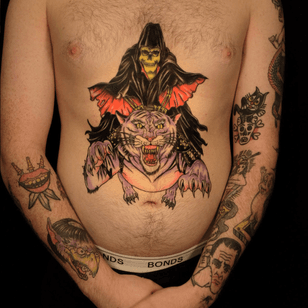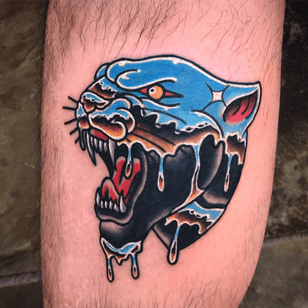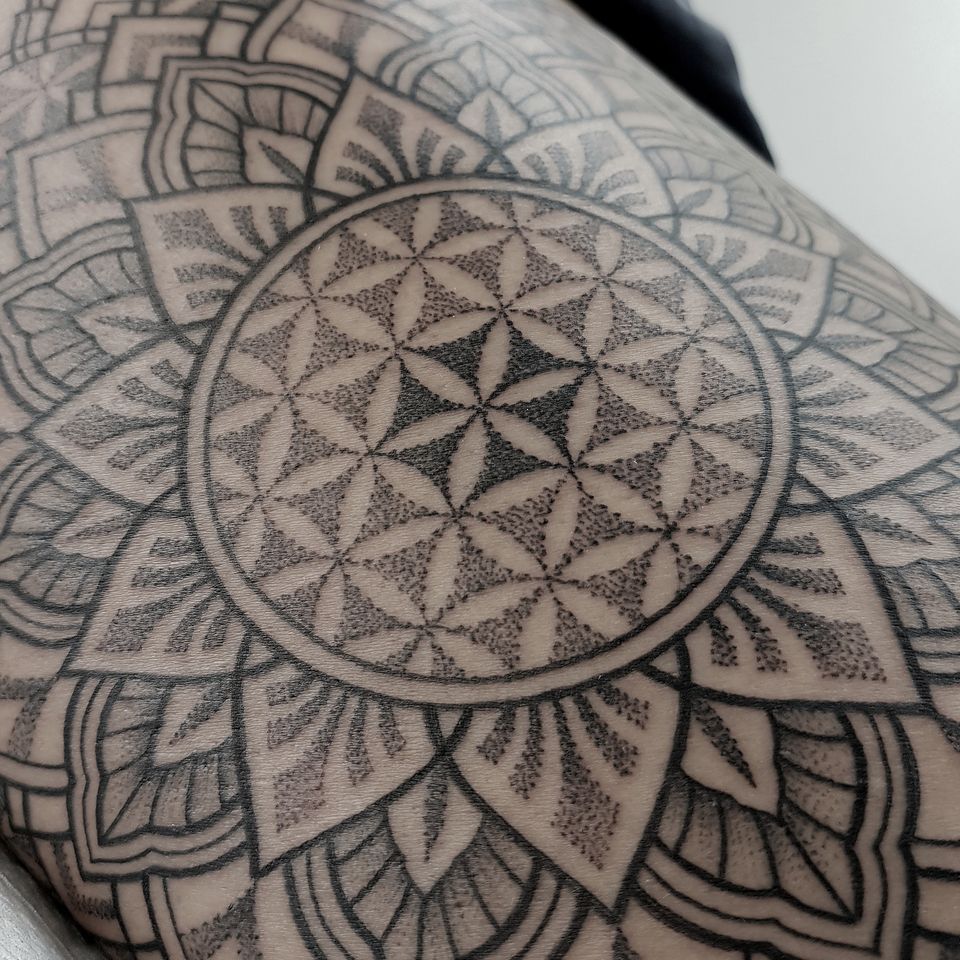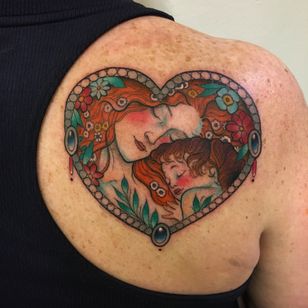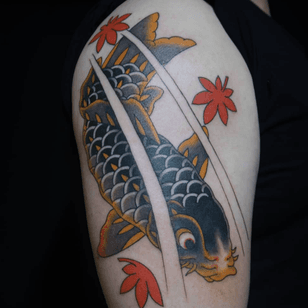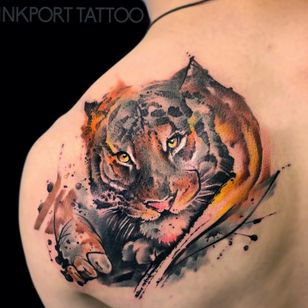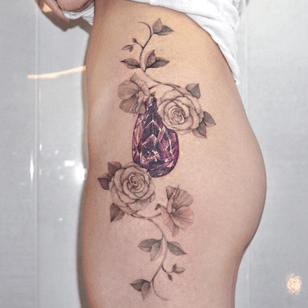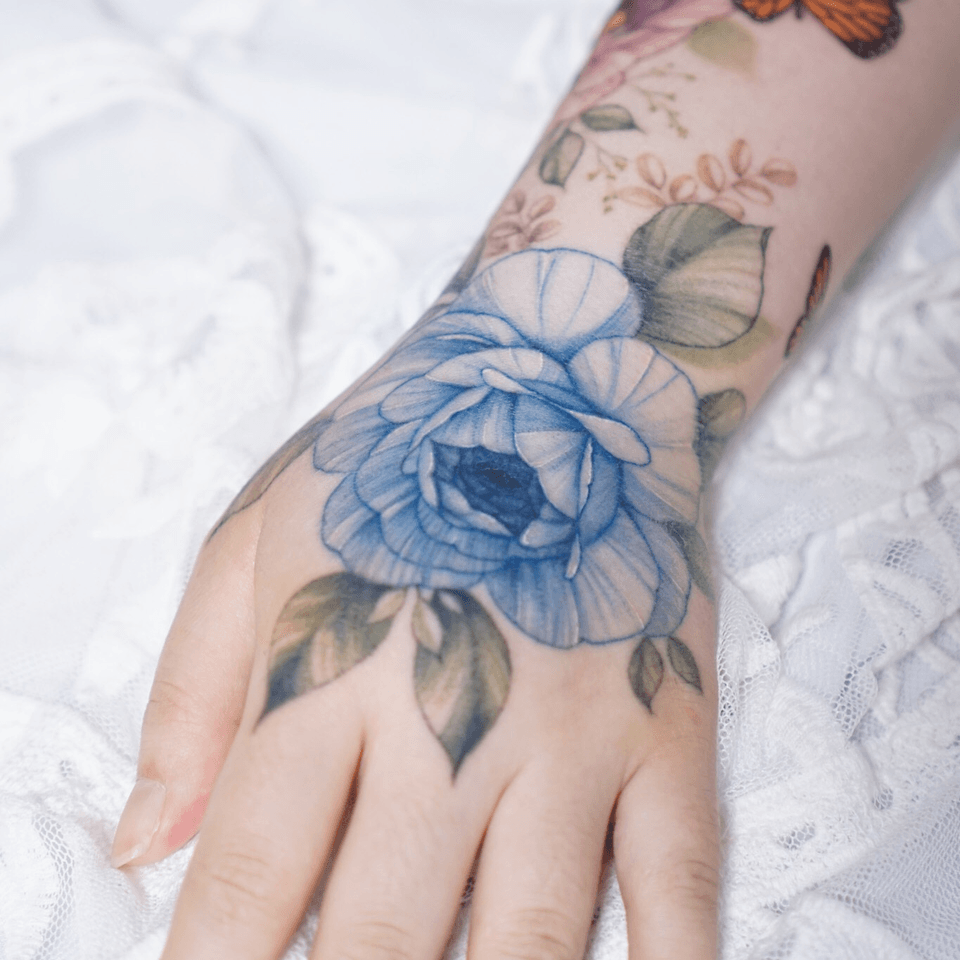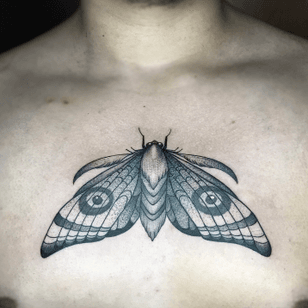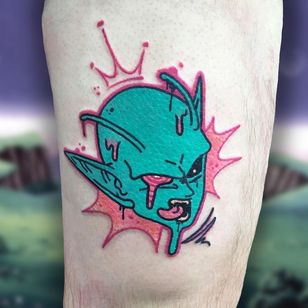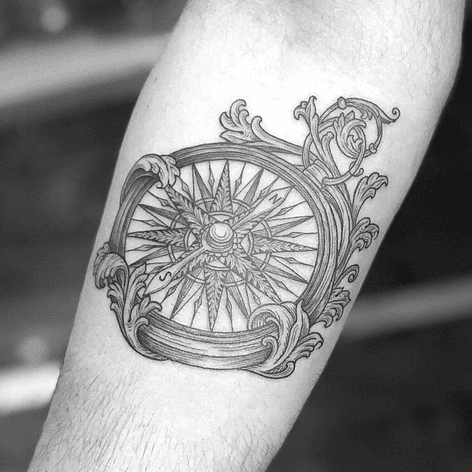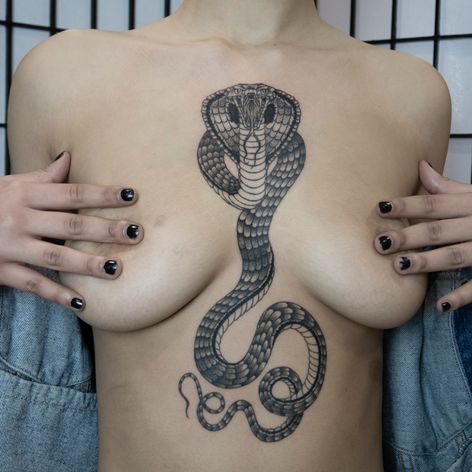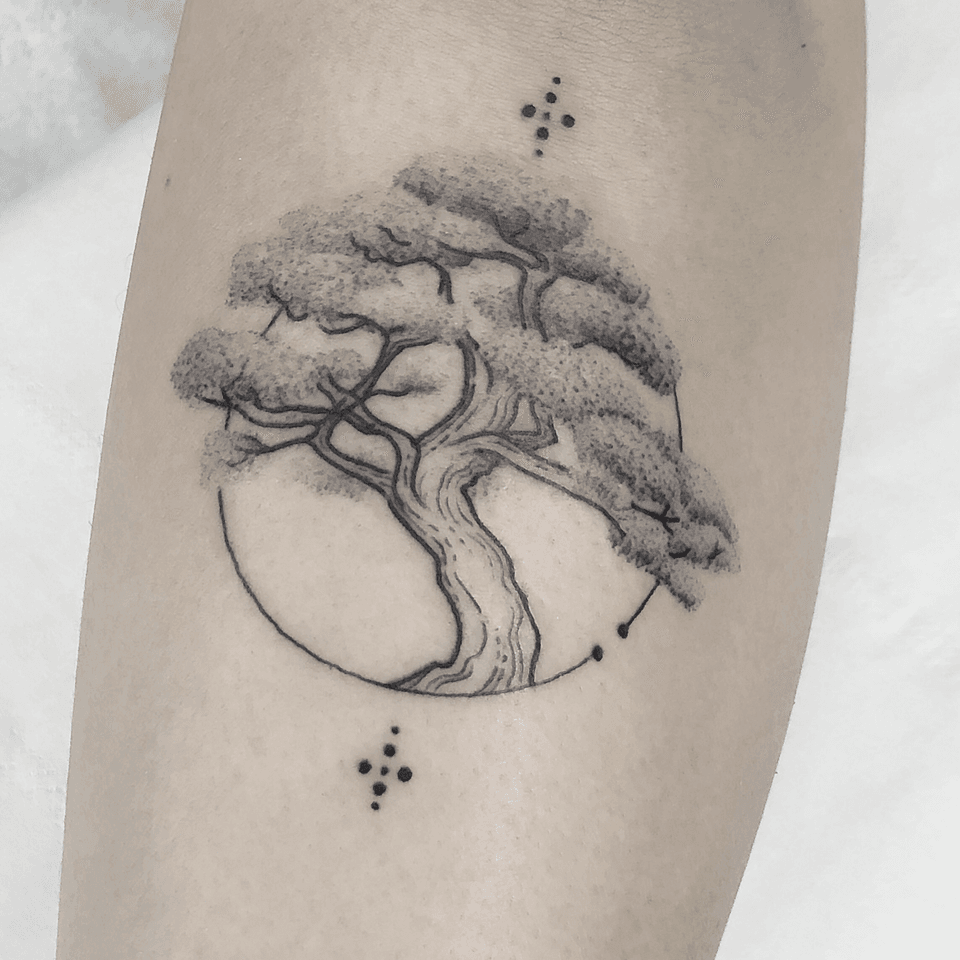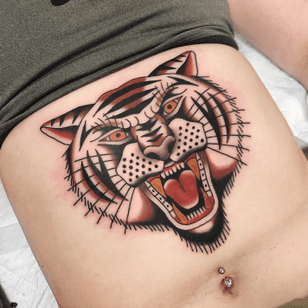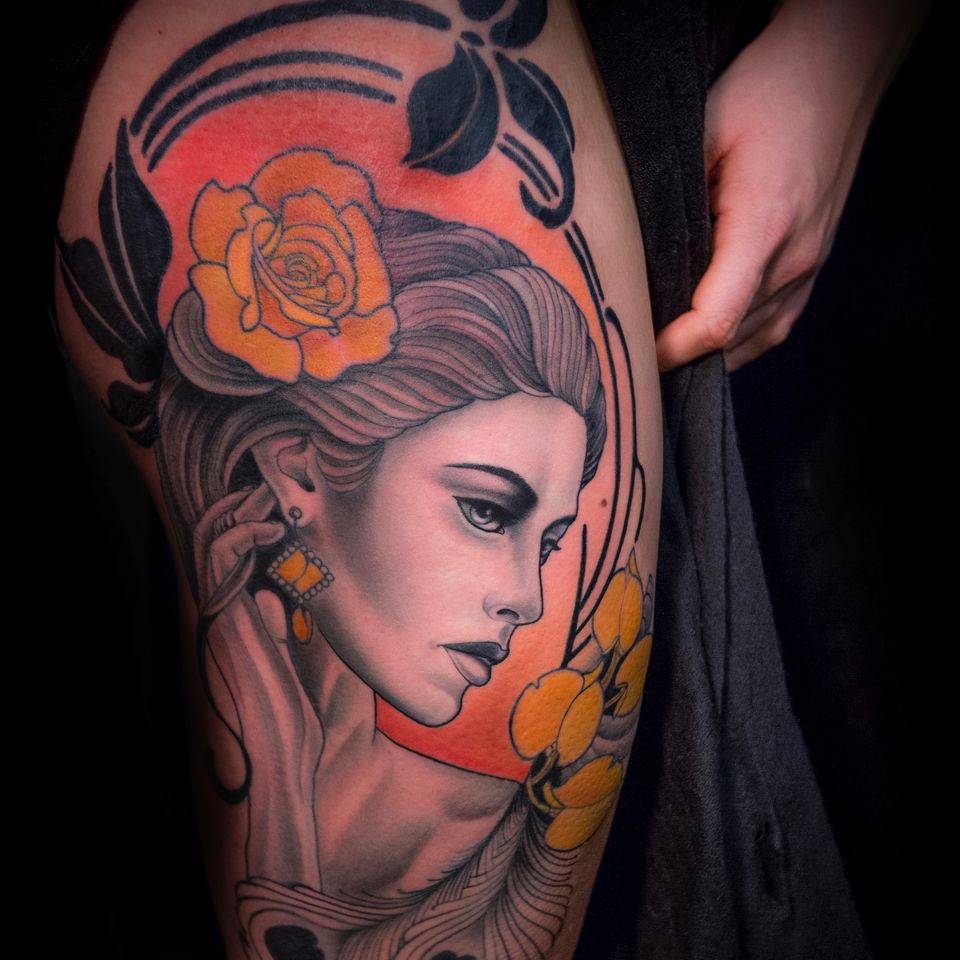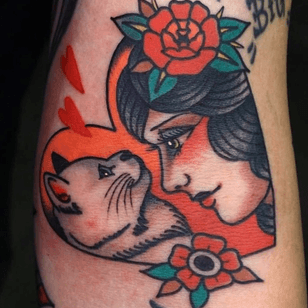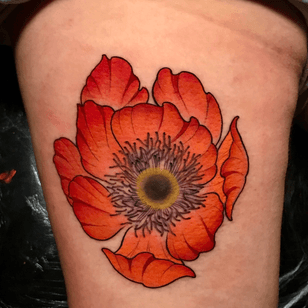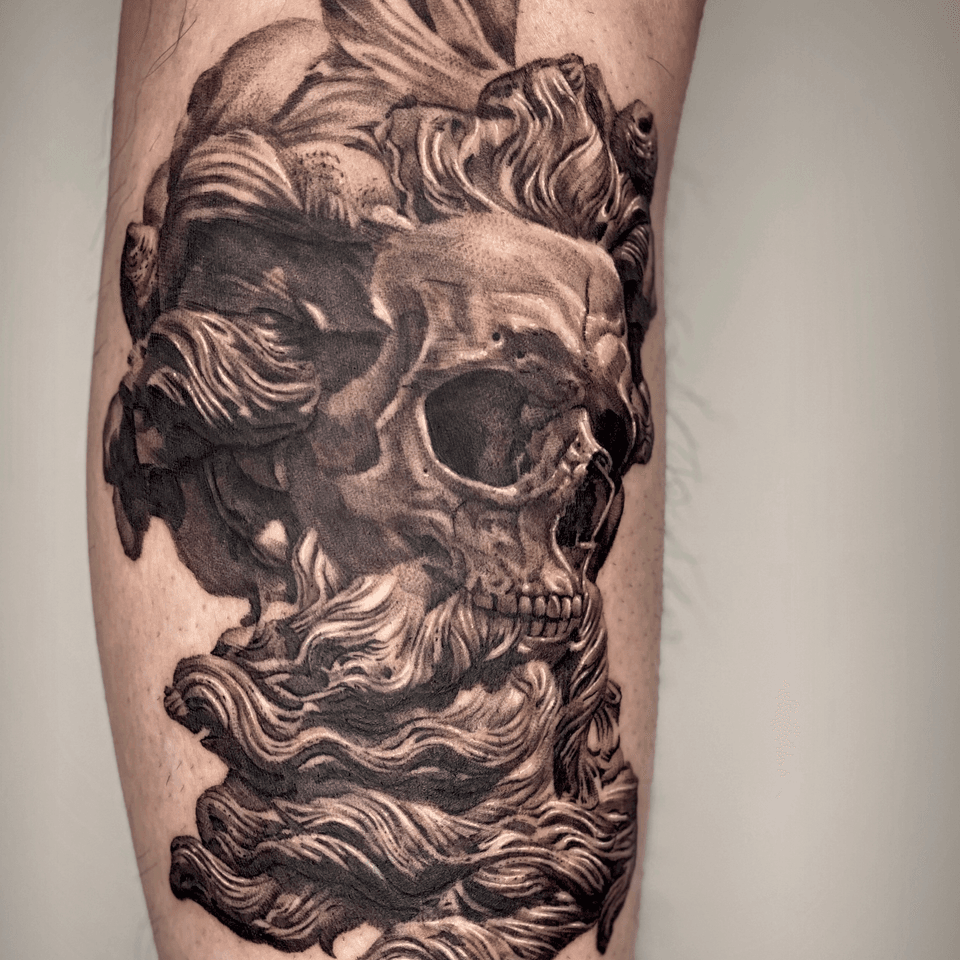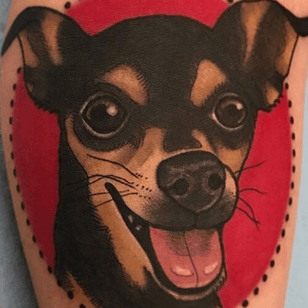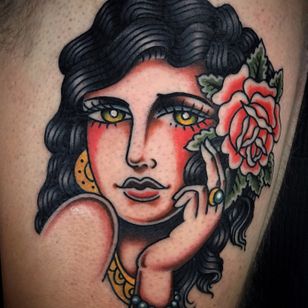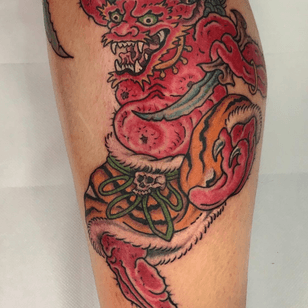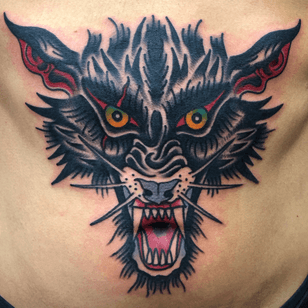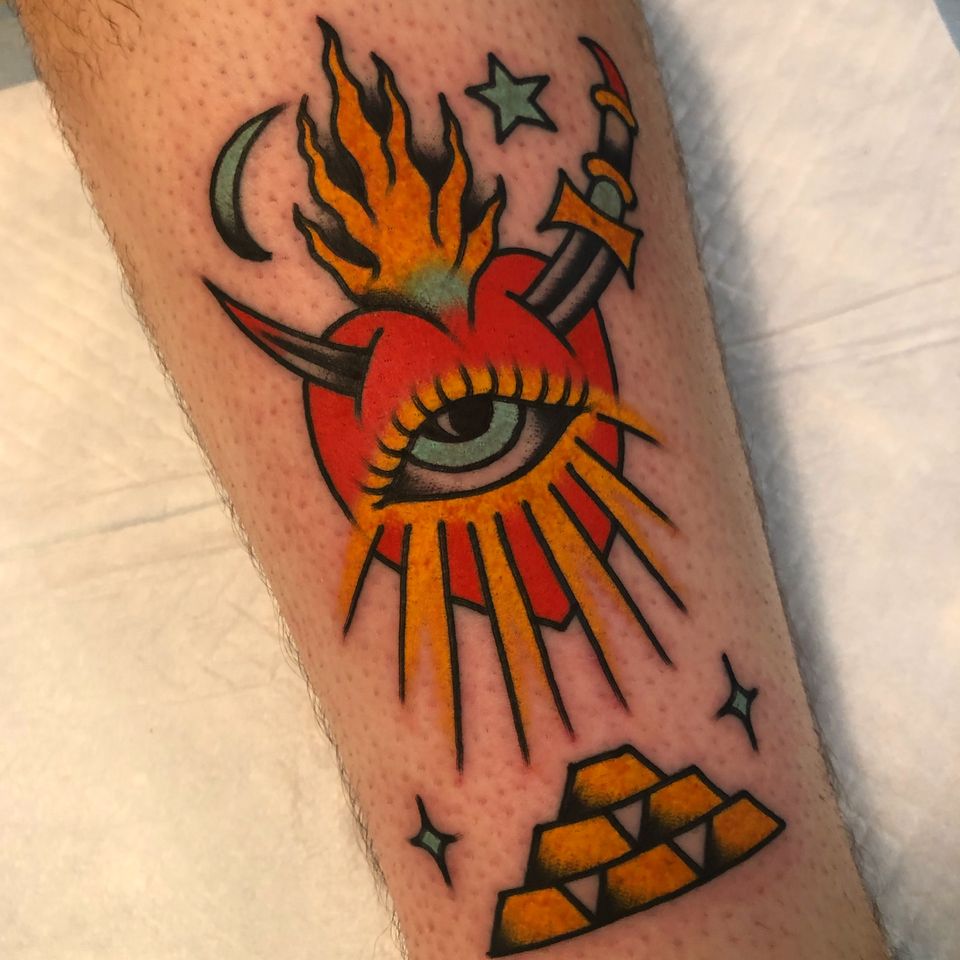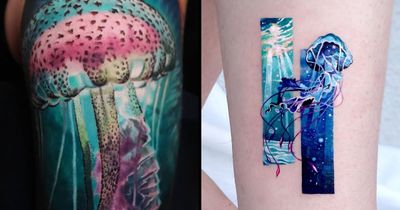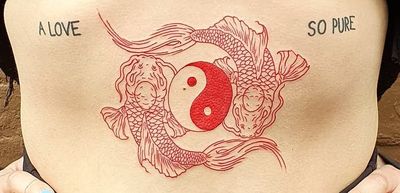Top 10 Surprising Benefits of Getting Tattooed

Summary
Explore how tattoos can work to lower stress, heal trauma, strengthen the immune system, and promote body-positivity!
From lowering stress levels to improving athletic performance, recent scientific discoveries have concluded that tattoos possess a wealth of surprising benefits. While we commonly think of tattooing solely as a means of creative self-expression, new studies have shown that tattoos are also effective tools for emotional and physical healing.
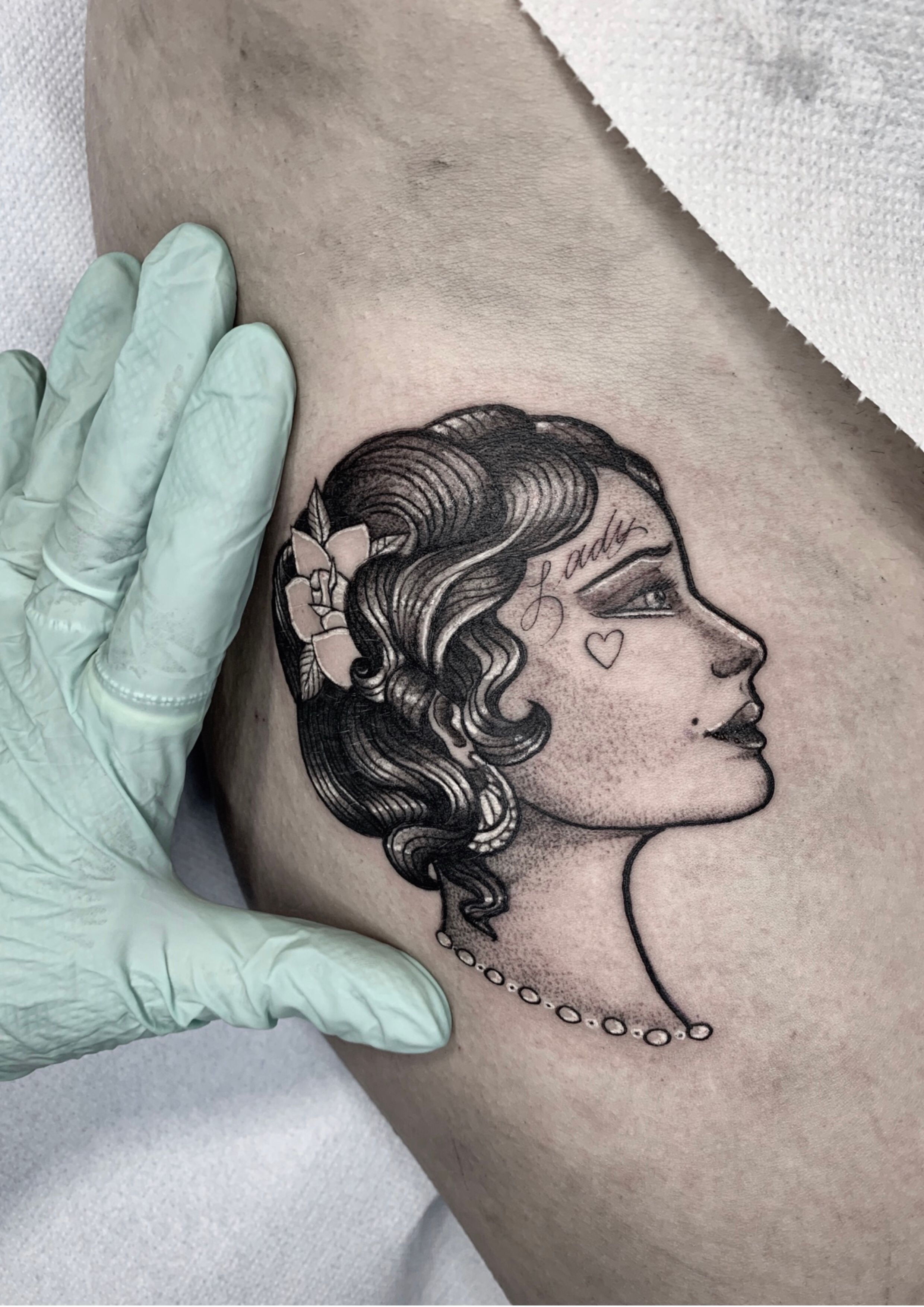
Aside from the advantages tattoos provide to the body and mind, they can also be good for your career, as new research has shown that more employers than ever are seeking out individuals with visible ink! So whether you’re contemplating your first tattoo, or you’re already totally covered, read along to learn how tattoos can positively impact the body, heal trauma, and enhance medical treatments.
Tattoos are shown to lower stress levels
One of the greatest benefits of getting tattooed is experiencing less chronic stress! A recent study published by the American Journal of Human Biology has discovered that getting multiple tattoos effectively decreases the stress hormone cortisol. It has been found that the more tattoos a person has, the lower their overall cortisol levels become.
When a person’s cortisol levels are too high, they may suffer from ailments like depression, high blood pressure, or a lowered immune system. Since the process of being tattooed multiple times is proven to permanently reduce cortisol levels, tattooing can now be viewed as a potential remedy for individuals battling these issues.
Each time you get tattooed, your body adapts to a high level of stress, causing your cortisol levels to eventually stabilize and drop afterward. While tattoos initially work to weaken the immune system through soft tissue damage, they eventually allow for a person’s body to acclimate to high cortisol levels, which in turn lessens the stress hormone’s presence in the body through repeated exposure to tattoos.
So, if you’d like to experience less stress, increased immune health, and a renewed appetite for life, tattooing may be a helpful avenue to consider!
Being tattooed can make you a better athlete
Yes, you read that right! Tattoos can assist those looking to perform better athletically. Thanks to tattooing’s ability to lower cortisol, it can be a helpful tool for those looking to build muscle and stay consistent in their physical routines.
If you enjoy lifting weights or playing sports, you’re probably familiar with the negative effects of cortisol. When you experience prolonged muscle soreness and slow healing, this occurs due to high levels of cortisol within the body. Luckily, through being tattooed multiple times, you can permanently lower your body’s cortisol levels, allowing your muscles to regenerate and repair much quicker. This provides you with the ability to spend more days doing what you love, with less downtime in-between.
Multiple tattoos are proven to strengthen the immune system
If you want to truly strengthen your immune system, tattoos are an excellent way to boost your body’s natural defenses!
As we have already discussed, tattoos can work to lower the body’s cortisol levels, which in turn has a positive effect on our immune system. When the body is less susceptible to stress, it is also less susceptible to illness, and since tattoos are shown to decrease stress hormones while boosting disease-fighting antibodies, it is safe to say that tattooing can be a valuable way to protect yourself from sickness.

Each time that you get tattooed, your body automatically releases antibodies that rush to the site of the tattoo, causing swelling to occur. This immune response initially weakens your body’s defenses, but much like a vaccine, when the preliminary shock wears off, the body’s immune system becomes stronger as a result of attempting to ward off the ink.
Tattoo by Exhausted Artist #ExhaustedArtist
Tattoos boost self-confidence and promote body-positivity
Recent scientific studies have determined that women with more tattoos possess higher degrees of self-esteem! This new information has worked to contradict previous stigmas against tattooed women, while also serving to demonstrate the healing and uplifting power of tattoos.
One of the reasons tattoos are believed to have a confidence-boosting effect is that they can be used to cover, creatively accent, or repurpose bodily flaws. For example, instead of looking at scars from a traumatic accident, or a history of self-injury, a person can create a beautiful and calming image instead, or a permanent symbol that works to represent their strength and perseverance.
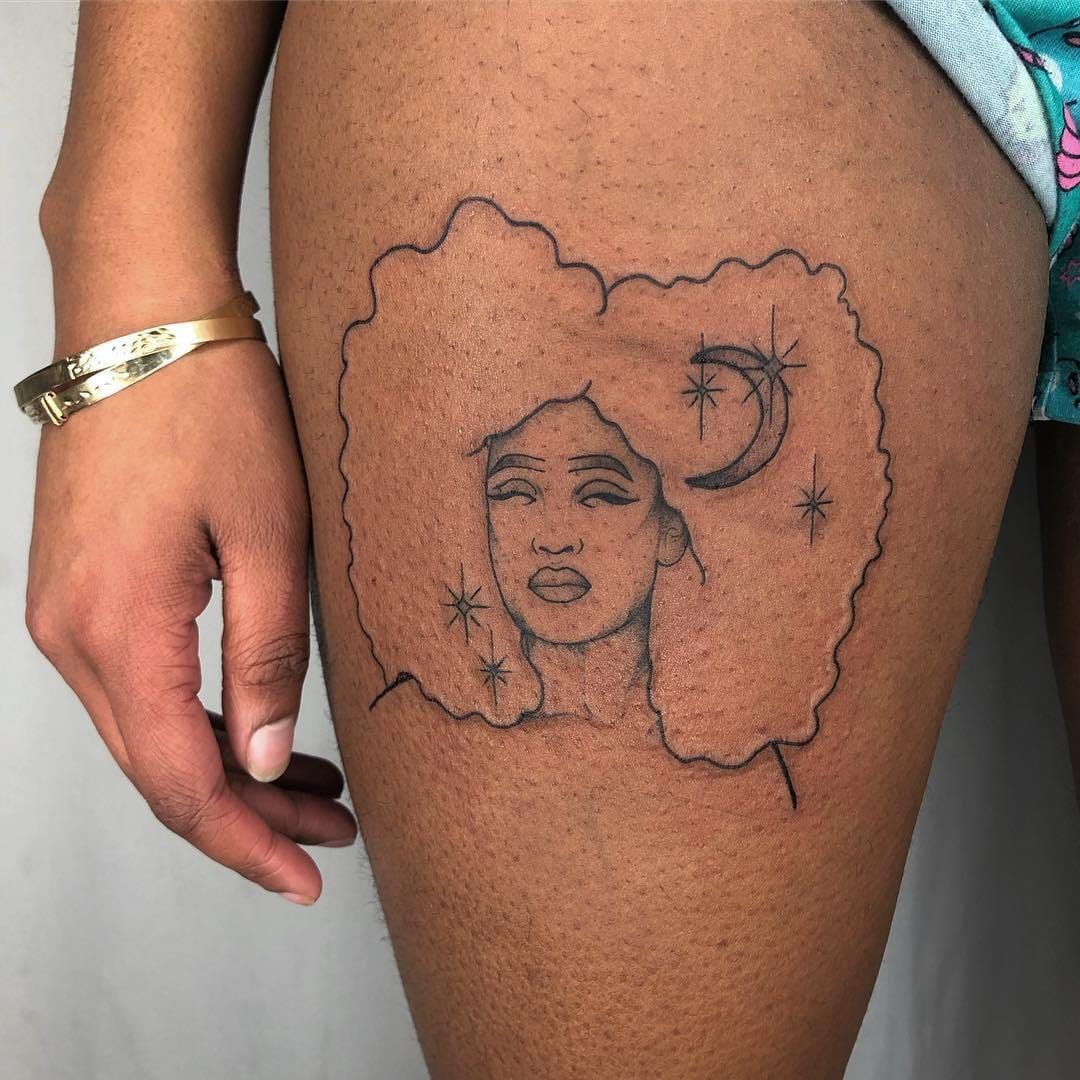
Tattoos also work to encourage body-positivity by allowing wearers to express their individuality in ways that flatter their shape and hug their curves. From winding snakes to billowing flowers and fiery dragons, tattoos can easily be used to accentuate the body while hiding undesirable marks or scars. It is also known that people who sport tattoos tend to garner more attention and stares than their non-tattooed counterparts, a factor which can certainly explain tattooing’s ability to boost one’s sense of self-esteem.
Aside from covering scars and flattering the body, tattoos can also be used to create permanent makeup and replace nipples after a mastectomy. These tattoo innovations have been monumental in increasing confidence levels and helping people to feel good in their bodies.
Sacred Geometry tattoo by jakab dezso #jakabdezso #sacredgeometry #geometric #mandala #shapes #dotwork #linework
Tattoos have made vaccines more effective
Instead of administering vaccines using a traditional syringe, recent studies have discovered that it is far more effective to introduce them to the body via tattoos! These “tattoo vaccines” do not use ink, but instead, administer the components of the vaccine using a tattoo machine.
This new and unusual method allows for vaccines to be cheaper and more accessible while boosting their efficiency to up to 16 times! The DNA vaccines that were utilized in the study were comprised of multiple vaccines rolled into one, which were able to be simultaneously and safely introduced into the body via a tattoo method. It was discovered that this method produced much higher immune level responses than the traditional syringe approach and was therefore deemed more effective.
Since tattooing a vaccine into the skin is undoubtedly more painful than using needle injections, it appears that this method will be reserved for therapeutic vaccines only. These are vaccines that are designed to fight an already present illness in the body, like cancer or HPV.
Tattoos are shown to provide healing to those struggling with PTSD and mental health issues
For those dealing with severe trauma, depression, or other mental health-related issues, tattooing can serve as a powerful tool in the battle towards recovery. Studies and personal testimonies alike have demonstrated repeatedly that tattoos assist in the healing process, allowing the wearer to re-write their narrative, commemorate their strength, and view the events that harmed them through a different lens.
In an article featured on Psychology Today, tattoo artist Paul Booth discussed the importance of tattooing as a means of addressing trauma, stating: “Survival, the endurance of pain, and ultimately an image that represents that experience as part of your past is what heals…you feel empowered because you suffered through it, and you survived”.
Coupled with talk therapy, tattoos can be a powerful healing modality, allowing a person to revisit their trauma safely, eliminate feelings of shame, and create a survival narrative. This process has been scientifically proven to have an immediate and long-lasting positive effect in regards to a person’s ability to heal and to regain control of their life again.
Hand tattoo by Silo #Silo #handtattoo #rose #flower #flowertattoo #rosetattoo #koreatattoo #koreaartist #seoultattoo #colortattoo #fineline #floral
Visible tattoos may make you a more appealing job candidate
Although visible tattoos have typically been considered roadblocks to employment, a recent study from the University of St. Andrews shows that having tattoos may make you a more desirable candidate for certain jobs!
From high-end salons to popular clothing companies and graphic design agencies, employers focused on presenting a modern, trendy, or edgy vibe are increasingly interested in employees sporting visible ink. As society becomes more accepting of tattoos, professional stigmas have begun to dissolve, allowing more people than ever to sport their tattoos at work, and get hired with visible body art. From positions in veterinary science to jobs in the food and beverage industry, many avenues have opened up for tattooed workers, allowing for more self-expression on the job, and helping to lift remaining stigmas about tattooed professionals.

Although tattoos are becoming more widely accepted at work, body art that displays graphic sexuality, gruesome violence, or curse words, should always remain hidden! In many situations, tattoos of this nature could prevent you from being hired, or cause you to lose your existing job if not covered up. If you plan to get raunchy, scary, or gruesome pieces, explore less visible placements like the back, butt, feet, and chest.
Tree tattoo by Mehmet Veli #mehmetveli #blackandgrey #dots #tree #treeoflife #bonsai #minimal #nature
The tattooing process can be euphoric and cathartic
Tattooing is often associated with varying degrees of pain, but many who have undergone the needle claim that they have also experienced strong feelings of euphoria, release, and emotional catharsis.
When the body experiences moderate to high levels of pain, as it does during a tattoo, a rush of natural chemicals like adrenaline and various endorphins are released into the bloodstream. This results in a feeling of euphoria that works to counteract the pain created by the tattoo.
For those looking to heal, let go, or transform themselves, tattooing’s element of natural euphoria can be incredibly powerful. Some even say that they find themselves “addicted” to the process of tattooing, returning to their artists' time and time again to achieve that same feeling.
Original work. #neonouveau #artnouveau #artnouveautattoo #neotradi #neotraditionalworldwide #neotraditionaltattoo #neotradstyle #neotraditional #neotrad #tattooart #trevorgavilan
Tattoos have been proven to help survivors of sexual assault reclaim ownership of their bodies
A study conducted in 2019 by Tailor and Francis Online discovered that survivors of sexual assault had experienced continued feelings of healing and strength as a result of being tattooed. By selecting imagery that speaks to a person’s trauma, and through the act of intentionally undergoing a painful process, survivors can re-process their experiences, and create new narratives focused around survival and strength.
Many victims of sexual violence often feel that they have lost ownership of their body and that it has become a foreign object, owned by their perpetrator. These feelings can lead to dissociation, eating disorders, addictions, and more. Thankfully, through the process of tattooing, survivors can reclaim ownership of their bodies, finally feeling autonomous, free, and comfortable in their own skin.
If you are struggling with depression, PTSD, addiction, or mental health issues due to sexual assault, remember to keep in mind that tattooing can be a powerful way to heal your past, regain control, and liberate yourself.
Statue with skull #skulltattoo #statue #skull #poseidon #zeus
Medicinal tattoos can be used to treat painful physical ailments
One of the oldest known examples of tattooing comes from a 5,300 year-old mummy by the name of “Otzi”. When Otzi’s body was examined, it was discovered that he suffered from rheumatism and that he had also fallen victim to a painful whipworm infection. Scientists found this discovery incredibly interesting when they realized that 80% of his tattoos correlated with pressure points on the body associated with rheumatism, and the other 20% being consistent with areas related to the stomach and gastrointestinal processes. This remains the earliest known example of medicinal tattooing.
Throughout history, from the ancient Egyptians to the early indigenous civilizations of the Alaskan Yupiget, tattoos have been used to activate healing, ensure spiritual protection, and ward off illness. These ancient medicinal tattoos were believed to work through their connection to meridian points which correspond to specific organs and systems within the body. Much like acupuncture, ancient medicinal tattoos were applied upon specific pressure points in the efforts to heal an ailment. In some cultures, it was believed that tattoo ink closed off passageways to the body, where harmful energies could enter and inhabit joints, organs, and bodily systems.
Today, medicinal tattooing has made a re-emergence into society, with Danish tattoo artist Colin Dale beginning to experiment with the process. Dale had learned about the intriguing history of ancient medicinal tattoos from famed mummy, Otzi, and with the help of a licensed acupuncturist, he decided to embark on a modern version of the practice. Using Otzi’s symbols as a guide, Dale tattooed a client suffering from asthma, tinnitus, headaches, snoring, and rheumatism. He placed the ancient symbols only on the corresponding meridian points for each ailment. To Dale and his client’s surprise, almost all of the client’s previous health issues have entirely disappeared, helping to prove the efficiency of this ancient and mysterious practice.
See more: The Medicinal Powers of Tattooing
surreal heart tattoo by Nathan Draper #NathanDraper #heart #sword #pyramid #bricks #star #fire #eye #traditional
